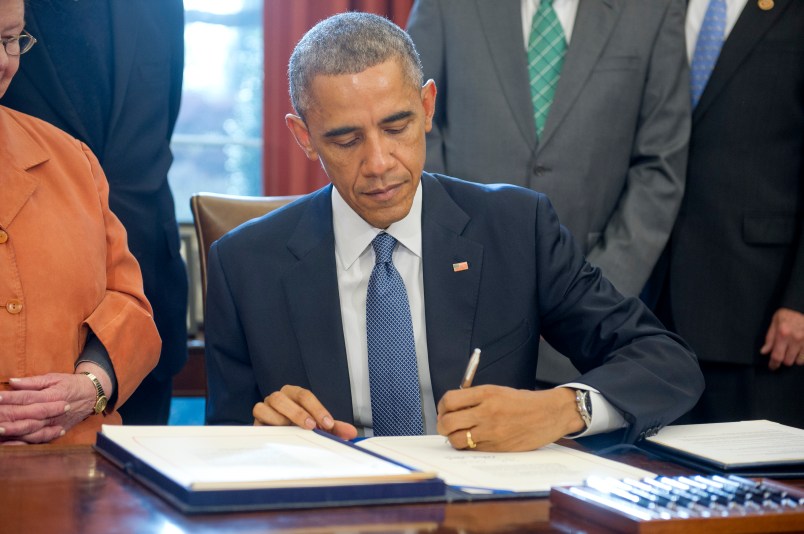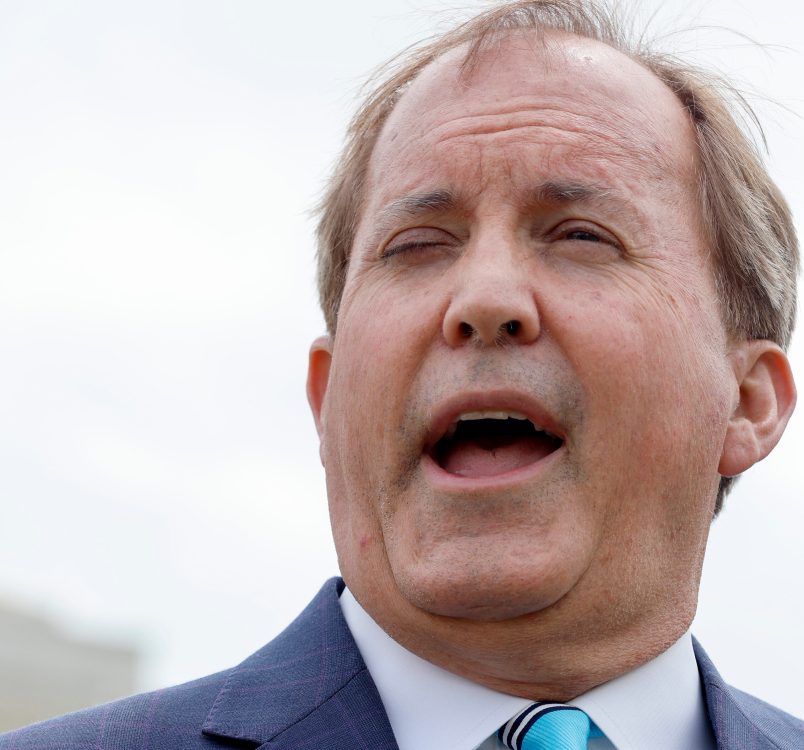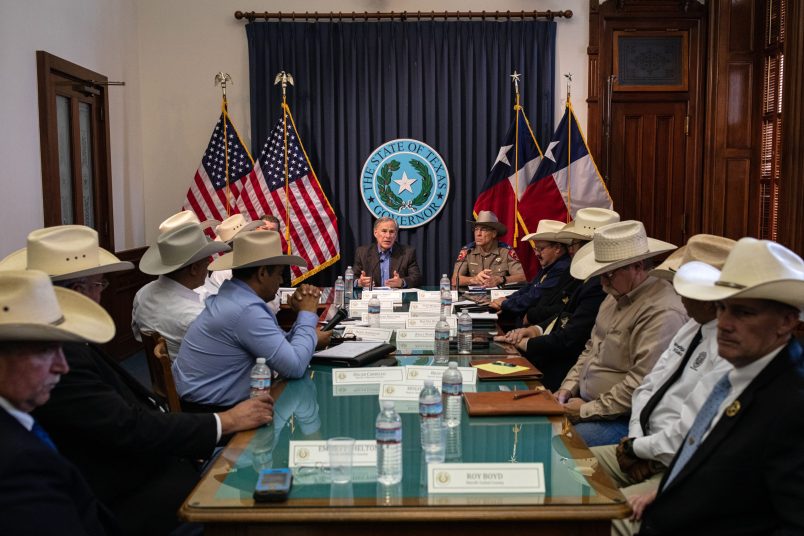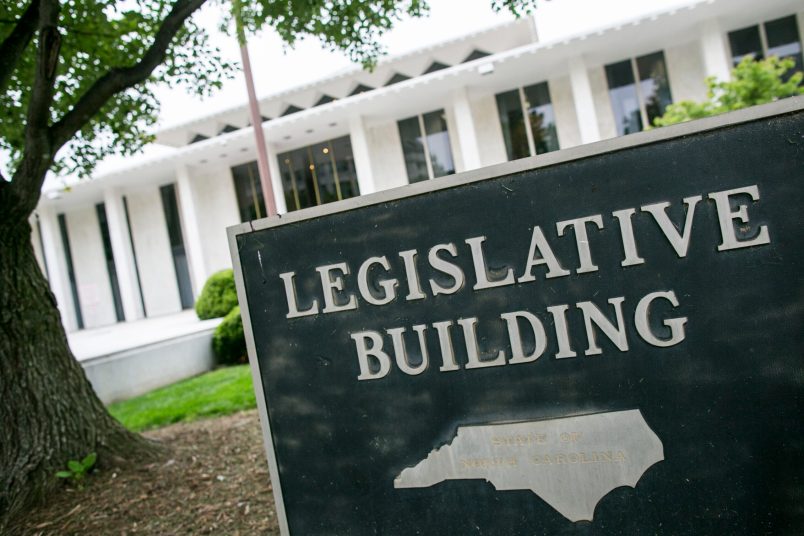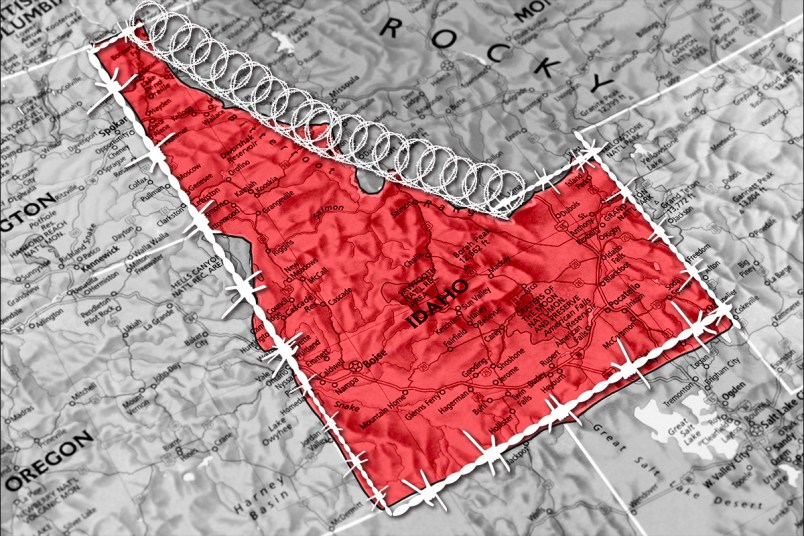The 2014 elections were about as brutal for Democrats as they could have imagined. But it wasn’t such a bad year for the party otherwise. President Barack Obama gave up on working with Republicans on big issues, and instead relied on his executive authority to implement a slew of important reforms.
Here are five big things he did this year without the help of Republicans.
Sweeping changes to immigration enforcement

In one of Obama’s most far-reaching executive actions as president, he announced last month that his administration would pave the way for some 4.4 million undocumented immigrants — parents of American citizens and people brought as children — to gain a three-year reprieve from deportation and a work permit. The executive action also included major steps to re-prioritize resources to deport unlawful immigrants who are criminals, gang members and suspected threats to national security. And this is after Republicans stalled endlessly and even threatened to shut down the government over bipartisan immigration reform legislation.
Actual progress on climate change

The Obama administration unveiled a robust initiative in June to cut climate-warming carbon emissions from coal-fired power plants by 30 percent under 2005 levels by 2030. The proposed rules dovetail other steps the administration has taken on climate change, such as efficiency standards for cars and trucks. As legal justification, the administration cites the 1970 Clean Air Act, which gives the Environmental Protection Agency great discretion in setting regulations to protect the environment.
And in November, Obama announced a landmark deal between the U.S. and China, the world’s two largest emitters of carbon, to slash greenhouse gas pollution. Though it’s technically a non-binding agreement (Obama needs Congress’ rubber stamp to make it binding) it’s an important step in cutting emissions in the two biggest polluters in the world.
Remaking the federal courts for a generation
In the 113th Congress, Senate Democrats were able to confirm 132 judicial nominations. This is the most in 33 years. pic.twitter.com/bBBGOwBk43
— Senator Harry Reid (@SenatorReid) December 17, 2014
Obama has appointed a whopping 96 lifetime-tenured judges to federal courts since Senate Democrats triggered the “nuclear option” in November 2013 to eliminate the 60 vote threshold for most nominations, stripping away the Republicans’ ability to block his appointments. The new judges, which substantially increase the racial and ethnic diversity on the federal bench, bring Obama’s total to 307, cementing his legacy for decades after he leaves office.
Beginning to transform U.S. relationships with Iran and Cuba

In major shifts of American foreign policy, Obama took steps toward official diplomatic relations with Iran and Cuba this year, seeking to end decades of enmity with the countries. The administration, along with the international community, has been negotiating an agreement with Iran to lift economic sanctions in exchange for curbing the Islamic nation’s nuclear ambitions. This month Obama announced a prisoner exchange with Cuba, along with steps to open an American embassy in Havana and ease the flow of travel and information between the U.S. and the neighboring island country.
Greater protections for federal contractors

While Obama failed to secure congressional approval for raising the federal minimum wage and establishing new workplace protections for LGBT individuals, he issued executive orders in 2014 enacting those protections for the portion of the economy under his control: federal contractors. That means all 2 million Americans connected to federal contracts will earn at least $10.10 per hour, and enjoy equal protections if they are lesbian, gay, bisexual or transgender. Obama’s push has been followed by numerous states and cities raising their minimum wage.


